Opinion of the World’s Engineer: Anatoli Unitsky speaks out about artificial intelligence

The author of string transport explained why the term "artificial intelligence" is too loud a name for computer algorithms and why giving them the right to make key decisions in our lives is not a good thing for humanity.
Algorithms make coffee for us, do the cleaning, as well as manufacture and drive cars. They launch rockets into space and in seconds process volumes of data that humans can’t embrace in a lifetime. Today, our civilization has unprecedented computing capabilities at its disposal, and a digitalized person may look a superman to someone. But the more powerful a society becomes, the less place remains in it for the individual in their natural manifestations. Is it really such a blessing to transfer the right of key decision making to a developed artificial intelligence? Is artificial intelligence capable of fulfilling the roles that are promised to it and that it is already taking upon itself? Let’s figure it out.
AI: is it intelligence at all?
We get used to the fact that computer algorithms performing numerous operations for us are called “Artificial Intelligence”. However, very few people think about how true this statement is. We consider the automatic vehicle control system to be an intelligent system and, moreover, we are confident that an automated vehicle is controlled by the artificial intelligence. But is it?
Is it really a “smart” house where we can open a window with a smartphone, although living in this house is uncomfortable and sometimes even harmful to health? Is it possible to call a “smart” city the place where millions of people live and work, where “smart” and “green” electric vehicles annually kill on the streets hundreds of residents, including children; just as like earlier they were killed in car accidents by environmentally dirty cars equipped with an internal combustion engine?
But is an electric car such a complex mechanism that it can be controlled with six simple actions: “accelerate”, “slow down”, “forward”, “backward”, “left”, “right”? So why has the involvement in driving a car become the main and defining feature of something insanely “smart”, named “artificial intelligence”?
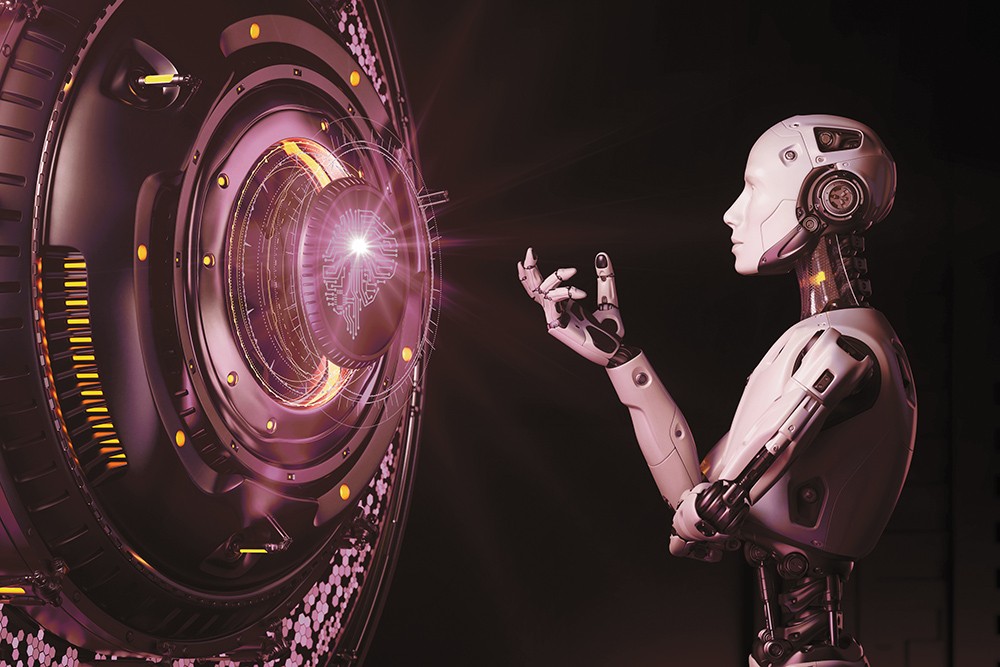
The basic structural unit of any living organism is the DNA molecule, which has hundreds of billions of parts – the atoms of various chemical elements, built in well-defined places in a structure of the highest complexity. Yet there are only a few thousand parts in an electric car. This means that from an engineering point of view the DNA molecule is unimaginably more complicated than an electric car – in millions of times. DNA is more complex than all the innovative technologies put together, designed by the thousands of creative people’s generations in our civilization over a long human history, such as bridges and skyscrapers, internal combustion engines and power plants, rockets and airplanes, cars and railways, computers and smartphones, as well as thousands and thousands other engineering technologies.
If we take a living cell, it is millions of times more complicated than a DNA molecule (that is, trillions of times more complicated than an electric car). The cell has its own roads and bridges, its own power plants and machine tools, factories and plants for the production of thousands of the most complex organic compounds, including DNA. Up to 50 thousand (!) not simply chemical, but biochemical reactions take place here simultaneously. Any organ and any system in our body is much more complex than a cell, and an organism is much more complex than an organ.
Now imagine a person lying in a coma. Their body (that is no match for an electric car in terms of complexity) functions normally, organs and systems work properly. At the same time, the work of this hyper-complex creation is controlled by their own brain (that is no match for AI in terms of the complexity of the device and functionality) without any outside help. Such a person does not have only conscience. Can it be said that in such a state they have intelligence? Of course, no, it can’t.
We began to use the term “artificial intelligence” for primitive technology process control systems such as cars, with the help of primitive machines like hardware computers, that in fact are high-speed calculators. But such an “intelligence” does not have conscience, spirituality, worldview, morality, ethics, culture and goal-setting. After all, it is obvious: the ability to calculate and manage any processes quickly, both technological and life ones, is not included in the concepts of “mind” and “intelligence”.
AI leads to fragmented thinking and a drop in the level of human IQ
With the advent of artificial intelligence algorithms, a person is alienated from the elements of mental and conscious abilities, as well as from their own individual mind. Let’s call it, since these electronic devices quickly and efficiently process numbers and perform complex computational operations, but they are all impersonal just like any other machine. The calculator effect is that in the process of performing mental operations, such as counting, instead of the subject, some actions are performed by a digital algorithm. As a result, the individual’s thinking is fragmented. During the formation of concept about an object, the mindset of which is aimed to be learnt, the essential stages turns out to be missed. The idea of the world becomes to be deprived of integrity, since the person themselves is alienated from thinking.
The described effect applies not only to computational activity. Algorithms are built into absolutely all mental operations: comparison, analysis, synthesis, abstraction, and generalization. For example, when getting to a destination, a person uses a navigator and may not even think about which part of the city they are in. There is a known case when Japanese tourists in Australia drove into the ocean by car, although they planned to get to the island not far from the coast. They followed the directions of the navigator. In the same way, when reading news and searching for the necessary information, we are increasingly guided by algorithms that fix our preferences and issue recommendations for review only on those topics that, from the artificial intelligence’s point of view, we might find interesting.
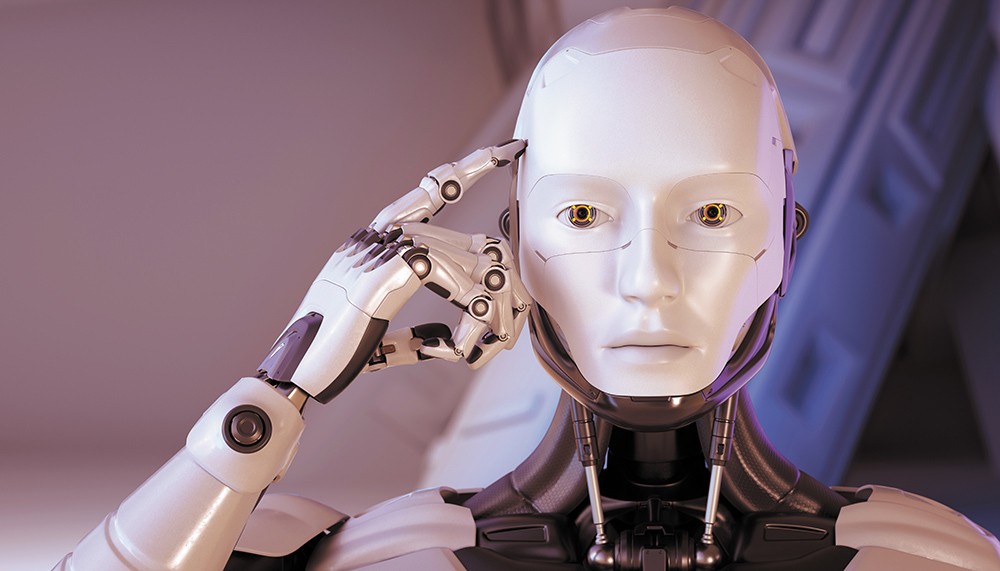
Statistics on the human intelligence growth in the United States and other countries showed that during the 20th century, its level has significantly increased by about 15 points on average. However, post-2000 experiments showed that the growth had stopped by 2004, and then the average IQ scores began to fall at such a rate, that for the next hundred years we risk losing 10 points that have been accumulated since the 1930s. It is important that the turning point, when after a long period of growth the intellectual abilities of people began to decline, is chronologically exactly coincides with the beginning of the computerization of society. Thus, the development of personality and intellect stops due to the disconnection of a person from creativity and their transformation into the consumer of standardized and redundant information, more precisely, “garbage” information. Most people in the consumer society began to live in the “garbage heap”, and not in material, but informational one.
With the introduction of AI, we are losing our “Self”
The modern individual, especially in liberal countries, is afforded large negative “freedom from”. Being unable to transform it into something positive, a modern human is ready to give up their “Self” in order to gain confidence and be involved into any great power. Earlier, it could have been a state, a party, or the personality of the leader, as we can see from the spreading of fascism in Europe. But today, a mass man is giving up their freedom in favor of digital thinking: they are ready to transfer to artificial intelligence the right and duty of making decisions in as many areas as possible.
Let our digital friends plot the route for us, run businesses and stock markets, diagnose diseases and give recommendations for their treatment, choose music to listen to, books and news to read, movies to watch, count votes in elections and conduct trials. With the help of algorithms, we will be able to improve genetic parameters before the birth of a child, and then improve the human body by implanting chips and taking drugs that will expand our capabilities. We will be able to instantly master complex professions and gain the necessary knowledge, for example, through augmented reality systems and neural networks integrated into glasses, master new languages or learn how to fly a helicopter.
We can only possess and use all of it, while being great in the view of magnitude of the incredible computing power that will be at our disposal. However, in this case, ourselves, i.e. our “Self”, will be significantly reduced. On the one hand, we will become consumers, and on the other hand – slaves, because a slave does not think and does not make decisions.
AI contributes to the establishment of total control over people
The widespread adaptation of gadgets and artificial intelligence algorithms is doing a better job of providing control tools than any police service has ever done. It is impossible to hide from AI even with the help of masks, glasses and hats, because the neural networks can recognize people, including those with a hidden face. For example, new Chinese technologies make it possible to identify a person by their gait in just a second, even in a large crowd.
The introduction of AI in production control systems, a well as the service sector banking and sectors will ultimately lead to the introduction of total control over the “wrong people” and the transfer of a number of civilizational functions to supposedly “smart” artificial intelligence. But digital totalitarianism is much more terrible than all previously existing systems of this kind because its subject of power and control is impersonal. Instead of a human, the functions of control and making a number of decisions about rewards or punishments are performed by artificial intelligence, supposedly neutral and objective. However, this is a highly controversial point. Let’s take an example. According to an independent reporter’s investigation, the program that helps judges in the United States identify criminals was twice as likely to find black suspects guilty by analyzing available crime statistics without considering the circumstances or the background of actual defendant.
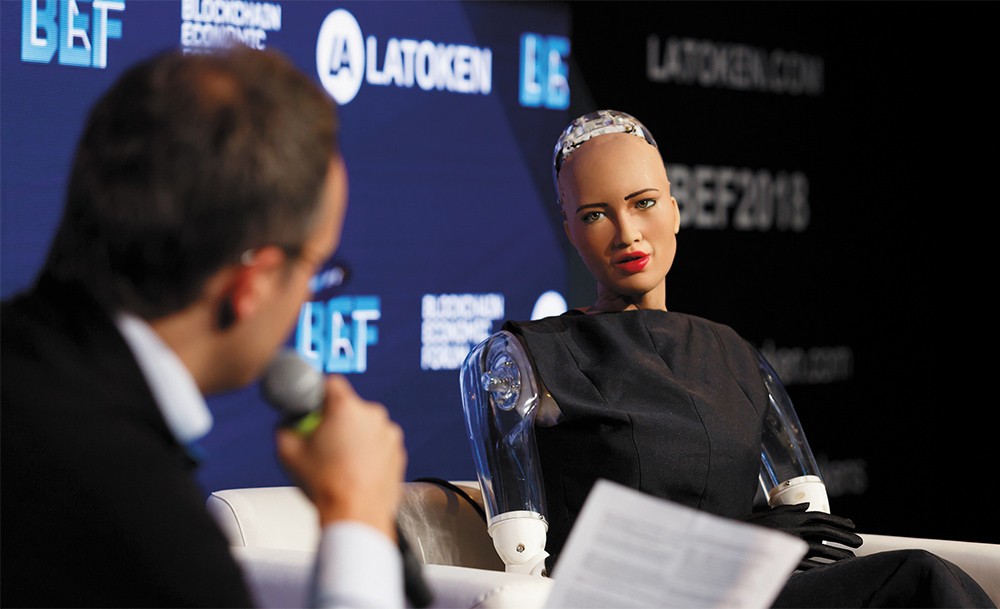
AI will lead to a biodigital convergent
The pessimistic scenario of the sequence of events does not necessarily involve the rise of machines and the physical destruction of people by them. Probably, people will be eliminated in a different way – a mental one. We will simply cease to be thinking beings by delegating this quality to machines, and thereby stop to exist as a species. The history of Homo Sapiens will end here, being replaced by a digitalized or biodigital convergent. Such a person will be able to have a special physiological structure, as well as appearance and behavior. Their defining distinguishing characteristic will be introduction of various kinds of chemicals and electronic devices into the body, while the most of the mental processes of such a person will be controlled by artificial intelligence algorithms integrated into the global information network.
The residents of technologically developed countries have many signs of a digitalized person already, the emergence of which is caused by the increasing role of gadgets as well as the information received and processed with their help. The decisive step in the context of the proposed evolutionary leap should be the integration of biological and digital technologies into a single system for regulating the human condition and behavior. Currently, we have already come close to this in terms of the technical feasibility of such a system. If it is formed, then the likelihood of the global digital totalitarianism formation will be increased by orders of magnitude.
The introduction of AI will lead to social destabilization
The ability of AI to do the work for a person is already leading to unemployment today. A few years ago, a company that was assembling iPhones in Chinese factories replaced 60,000 workers with robots. It is projected that by 2025 the artificial intelligence can replace a third of employees in many enterprises. And this is just the beginning.
The products of natural thinking are forced to compete with the products of digital thinking. This is another human replacement mechanism. So, for a long time it was believed that creativity and ingenuity are a purely human advantage. However, today neural networks write music, poems and paintings, create designs, and they do it much faster and sometimes even more creatively than a person. At the end of 2022, the AI-powered neural network ChatGPT shocked the public with its ability to convert a query into legal documents, poetry, and thesis, processing vast amounts of Internet text data in a record time. And the Midjourney neural network easily converts printed text into paintings that are not inferior to the works of professional artists.
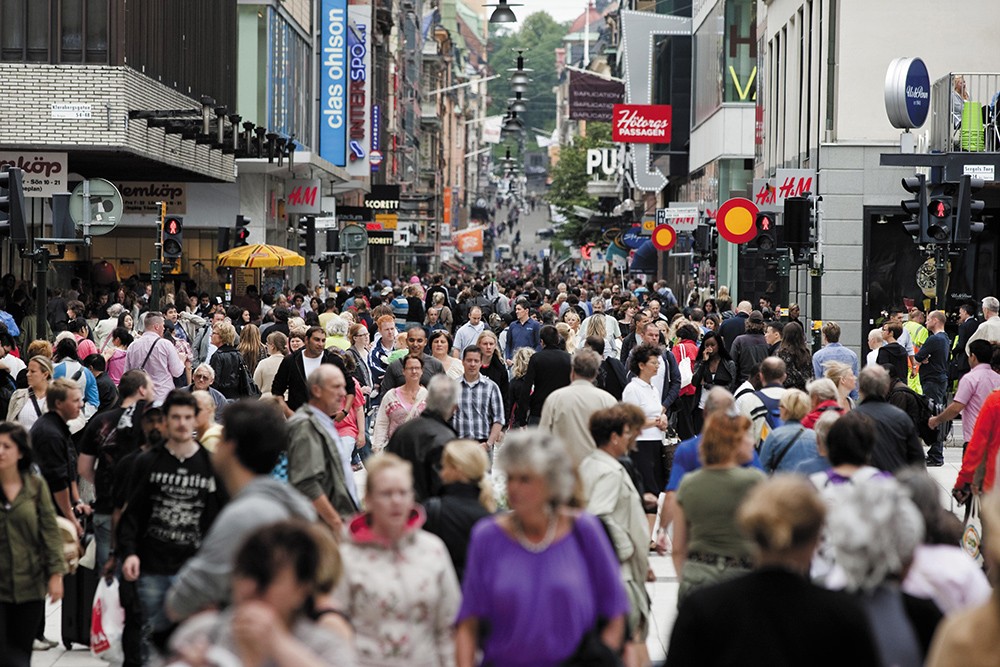
Ultimately, the human individual may be completely repressed. First, there will be no need for the products of their thinking and creative abilities. Secondly, these abilities will turn out to be unsuitable for effective work in the new conditions. In the abundance of informational garbage, we may simply be unable to find the informational raw material we need for thinking.
But what will happen when artificial intelligence completely replaces humans? Where will the crowds of unemployed go? Who will feed them? The consequences of the widespread introduction of AI can lead to one of the deepest social crises in the entire history of humankind.
Why is this happening?
The main reason of the occurrence of ideas that a digit should lead the individual, society and humanity as a whole is the desire of the so-called “world elite”, or as they say “deep power”, to obtain super profits with uncontrolled and irresponsible management of humankind. True, it will be a different “humanity” - with “people” reduced to the level of digital convergent biorobots, where each digitized humanoid creature will become just a faceless ant or a worker bee in a swarm.

From an engineering point of view, the attempt to create a “brave new world” of inclusive capitalism is no better than the idea of creating a world in which, for example, the flight of a primitive Boeing aircraft is controlled by an incredibly complex coronavirus or an even more complex mosquito.
Yet, the civilization gave each person the main components of their personal intelligence – awareness, spirituality, morality, culture, and goal setting. It also gave us the knowledge base, including scientific knowledge, formed over thousands and thousands of generations of the Homo Sapiens evolution and the Earth’s industry as a whole, which made it possible to develop a high-speed digital computer.
This means that the stillborn, unreasonable and soulless child of technological progress called “Artificial Intelligence” shouldn’t lead its creator – a person with a real living human intellect. Otherwise, everything will be like in the story with a plane controlled by a virus, a mosquito or a monkey. Taking off, for example, with the help of an autopilot, such a “smart” device will certainly crash, just because of the fact that even by learning how to operate the machinery, a mosquito or a virus will not learn how to use it expediently, for example, to fuel, which is also needed to be produced somewhere.
In my opinion, our civilization can be realized in the future only in three scenarios: two pessimistic options and the optimistic one.
The first is the global oppression of all living creatures and its replacement with artificial things.
The second is the rejection of civilizational (technological) path of human evolution and the return to savagery, accompanied by the triumph of Nature.
The third is the establishment of a biosphere balance between terrestrial wildlife and artificial forms of organization of matter and thought, where there is a place for both the man as an individual and the human civilization as a planetary society for unlimited harmonious evolution in the immense Universe, Space, Time, and Resources. My optimistic engineering scenario is the EcoSpace metaprogram, which includes:

1) The uST program – a highly efficient and safe “green” string transport of overpass type,
2) The uCity program – a “green” urbanism based on the self-sufficient pedestrian clusters of linear cities with transport at the “second level” above ground, where 10-20-30 billion people can live in the harmony with Nature,
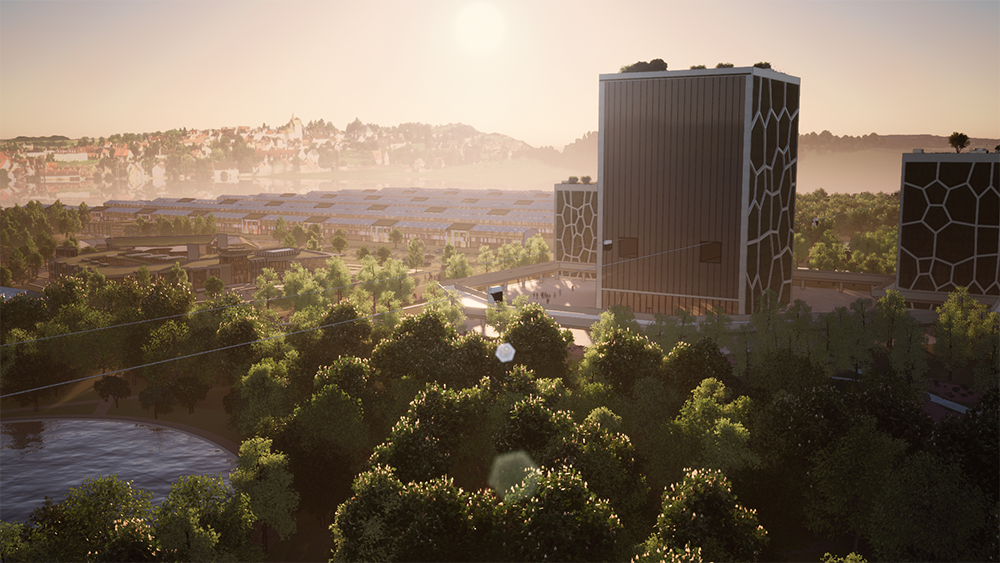
3) The uGreen program - pre-industrial organic farming (without chemical fertilizers, pesticides and GMOs) based on the uTerra biohumus, capable of feeding 10-20-30 billion people with healthy (and even healing) food,
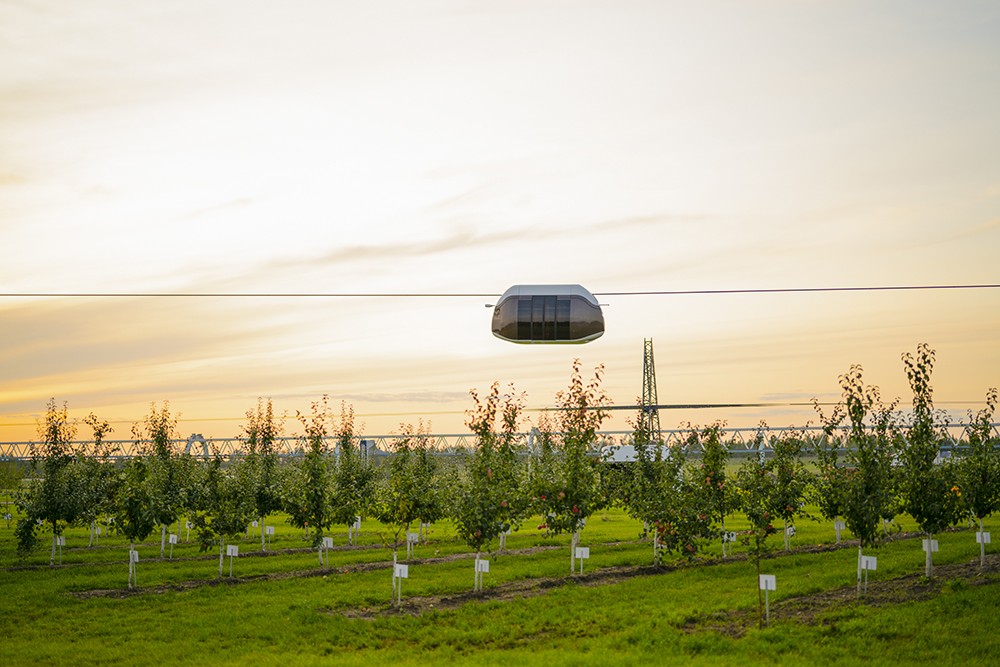
4) The uEnergy program – a “green” relic solar bioenergy, with the supply of fuel on the planet for thousands of years for the needs of 10–20–30 billion people (uTerra biohumus will become a waste product of such energy),
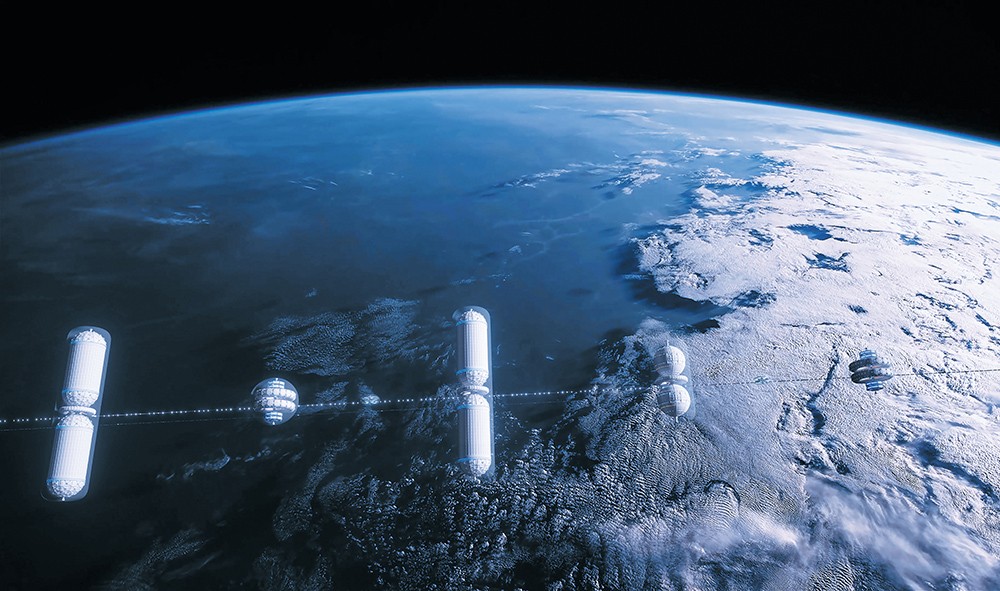
5) The uSpace program – a non-rocket technology for bringing harmful earthly industry into the near space using the “green” geospace aircraft “General Planetary Vehicle”, capable of delivering up to 10 million tons of cargo and 10 million people into orbit and back in one flight, while reducing the cost of a ticket by thousands of times compared to a rocket.
What path will the humankind choose? We decide.
Anatoli Unitsky, the World’s Engineer